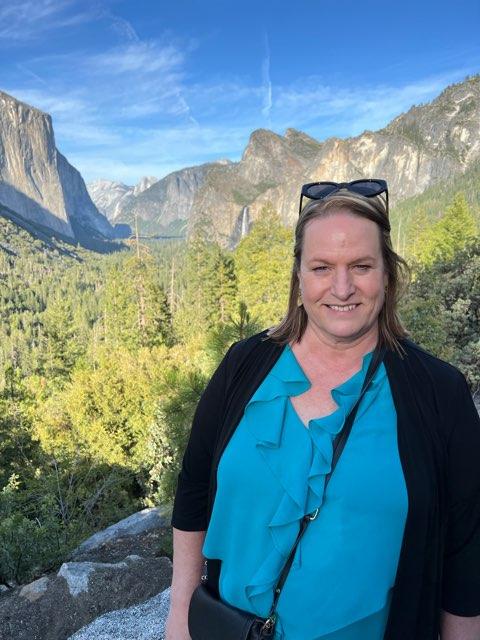Infidel
Books | Biography & Autobiography / General
4
(219)
Ayaan Hirsi Ali
In this profoundly affecting memoir from the internationally renowned author of The Caged Virgin, Ayaan Hirsi Ali tells her astonishing life story, from her traditional Muslim childhood in Somalia, Saudi Arabia, and Kenya, to her intellectual awakening and activism in the Netherlands, and her current life under armed guard in the West. One of today's most admired and controversial political figures, Ayaan Hirsi Ali burst into international headlines following an Islamist's murder of her colleague, Theo van Gogh, with whom she made the movie Submission. Infidel is the eagerly awaited story of the coming of age of this elegant, distinguished -- and sometimes reviled -- political superstar and champion of free speech. With a gimlet eye and measured, often ironic, voice, Hirsi Ali recounts the evolution of her beliefs, her ironclad will, and her extraordinary resolve to fight injustice done in the name of religion. Raised in a strict Muslim family and extended clan, Hirsi Ali survived civil war, female mutilation, brutal beatings, adolescence as a devout believer during the rise of the Muslim Brotherhood, and life in four troubled, unstable countries largely ruled by despots. In her early twenties, she escaped from a forced marriage and sought asylum in the Netherlands, where she earned a college degree in political science, tried to help her tragically depressed sister adjust to the West, and fought for the rights of Muslim immigrant women and the reform of Islam as a member of Parliament. Even though she is under constant threat -- demonized by reactionary Islamists and politicians, disowned by her father, and expelled from her family and clan -- she refuses to be silenced. Ultimately a celebration of triumph over adversity, Hirsi Ali's story tells how a bright little girl evolved out of dutiful obedience to become an outspoken, pioneering freedom fighter. As Western governments struggle to balance democratic ideals with religious pressures, no story could be timelier or more significant.
AD
Buy now:
More Details:
Author
Ayaan Hirsi Ali
Pages
353
Publisher
Simon and Schuster
Published Date
2008-04
ISBN
0743289692 9780743289696
Ratings
Google: 3.5
Community ReviewsSee all
"Wow! This is the true story of the author, a woman born in Somalia, Muslim, impoverished and at the age of six, she was forced to undergo genital mutilation. After escaping the horrors of the Somali civil war, she lived in Saudi Arabia, Kenya and eventually, she escaped an arranged marriage commitment by secreting off to the Netherlands and claiming asylum. After educating herself at Dutch universities, she eventually becomes a member of parliament, where she risks her life, fighting for the human rights of Muslim women immigrating to the Netherlands.
This story is about her critical examination of the Muslim religion and how it is so oppressive to women and society at large. She concludes that it’s onerous rules and commandments are to blame for so many Muslim countries not modernizing and being stuck in backward, oppressive cultures. The audiobook is read by the author and I found her to be courageous and resilient for all the horrors she survived."
"Buckle up, my friends. Ayaan Hirsi Ali's "Infidel" is a staggeringly controversial memoir that forcefully condemns "multicultural" appeasement of Islamic immigrants in Western countries because of their unequal treatment of women and subordination of individual liberty. A fellow at Stanford's Hoover Institution and Harvard's Kennedy School, a member of the Council on Foreign Relations, a scholar at the right-wing American Enterprise Institute, and a former member of the Dutch parliament, Ali traces her intellectual journey from a devout Somali Muslim to a Westernized apostate in Holland targeted for assassination by Islamic fundamentalists. If her name sounds familiar, you may be recollecting the notorious 2004 assassination of Dutch filmmaker Theo van Gogh who was murdered for making a controversial film "Submission" with Ali. She also recently published a critique in the WSJ of fellow Somali immigrant and controversial political figure Ilhan Omar.<br/><br/>Living in an Islamic society, Ali's freedom was heavily restricted and she spent a lot of time reading. Even silly kids' books like Nancy Drew gave her a window onto a completely different way of life and made her question the unequal conditions that Islam imposed upon women. She credits these Western books with providing the foundation for her resistance, "Most of all, I think it was the novels that saved me from submission." <br/><br/>One of the themes she returns to again and again is the Western notion of romantic love. She tells of stealing pleasure from scandalous paperbacks that she and other girls would trade with one another. I'm reminded of the idea from "How the Classics Made Shakespeare" that romantic love is the key driver of plot in many of Shakespeare's works. No matter how her culture tried to repress her desire, it was too powerful a force to be resisted.<br/><br/>But Ali did more than just read trashy bodice-rippers. Like Malcolm X, Ali devoured books to try to understand her world. Especially once she began attending the Leiden University in Holland, she dove deep into the works of Spinoza, Locke, Kant, Mill, Voltaire, Russell, and Popper. These transformed her consciousness and posed a major challenge to her religious beliefs:<blockquote>Sometimes it seemed as if almost every page I read challenged me as a Muslim. Drinking wine and wearing trousers were nothing compared to reading the history of ideas.</blockquote>Ali's intellectual struggle plays out across the stage of her tragic personal life. Her politically influential father spent much of her childhood in jail and essentially abandoned her mother for another wife. Ali's grandmother had a local man perform a female genital mutilation procedure on her when she was five years old. Her mother frequently beat her. She escaped an arranged marriage by fleeing as a refugee to Holland (where she committed immigration fraud). Later, her sister suffered a mental breakdown and died. Ali's personal resilience and refusal to suffer in silence is inspiring.<br/><br/>OK, so now on to the really controversial stuff. After her move to Holland, Ali began serving as a Somali translator for the government. In her role, she had a firsthand view of the continued oppression of women by the Somali community even after they got refugee status in Holland. She saw that many Muslims failed to integrate into Dutch society and instead took advantage of government support to run their own religious schools that perpetuated non-Western views:<blockquote>At the Muslim schools there were no children from Dutch families. The little girls were veiled and often separated from the boys, either in the classroom or during prayer and sports. The schools taught geography and physics just like any school in Holland, but they avoided subjects that ran contrary to Islamic doctrine. Children weren’t encouraged to ask questions, and their creativity was not stimulated. They were taught to keep their distance from unbelievers and to obey. This compassion for immigrants and their struggles in a new country resulted in attitudes and policies that perpetuated cruelty. Thousands of Muslim women and children in Holland were being systematically abused, and there was no escaping this fact. Little children were excised on kitchen tables — I knew this from Somalis for whom I translated. Girls who chose their own boyfriends and lovers were beaten half to death or even killed; many more were regularly slapped around. The suffering of all these women was unspeakable. And while the Dutch were generously contributing money to international aid organizations, they were also ignoring the silent suffering of Muslim women and children in their own backyard. Holland’s multiculturalism — its respect for Muslims’ way of doing things — wasn’t working. It was depriving many women and children of their rights.</blockquote>Ali gained notoriety as a fierce critic of Islam and multiculturalism. She focused on the unequal treatment of women as well as the repression of individual rights. Her views have contributed to the ongoing debate on Muslim immigration to Europe and caused so much controversy that she was forced out of the Dutch government and nearly even had her citizenship revoked.<br/><br/>As a female Somali apostate who opposes the moral relativist agenda of the multicultural left, Ali has a rare perspective. Even if you disagree with her positions, it's worth reading about how she arrived at them. Her story is powerful and tragic and brave. It forced me to take a different look on immigration issues and I found it hard to argue with her logic. I'm looking forward to reading some books on the other side to figure out what I really believe here.<br/><br/>For another controversial Muslim apostate, check out Salman Rushdie's <a href="https://books.max-nova.com/satanic-verses">"The Satantic Verses."</a><br/><br/>Full review and highlights at <a href="https://books.max-nova.com/infidel">https://books.max-nova.com/infidel</a>"
Similar Books
4.5
3.9
4.2
4.1
4
4
3.6
4.5
4
4.7
4.1
4.5
4
4
3.9
4.2
4
4
3.8
3.7







